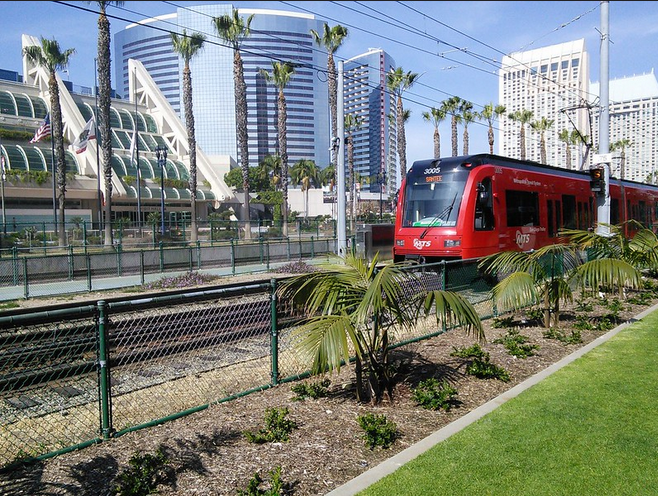Note: GJEL Accident Attorneys regularly sponsors coverage on Streetsblog San Francisco and Streetsblog California. Unless noted in the story, GJEL Accident Attorneys is not consulted for the content or editorial direction of the sponsored content.
The two-year legislative session nears its end, and the secretive process by which bills are put on "suspense" and quietly killed or passed is complete.
This post is a first look at a couple of important bills that are still alive. They are subject to further votes, but so far so good.
Eliminating Minimum Parking Requirements
First, after ten long years of trying, a bill to change parking requirements finally made it past the Senate Appropriations committee. This is a huge deal. Housing developers, especially affordable housing developers, have been telling whoever will listen that the cost of adding parking makes some housing too expensive to build.
Cities have been requiring new housing to include minimum numbers of parking spots per unit, based on specious reasoning and habit. The results have been more parking spots than cars, high housing costs, and other ills well articulated by Donald Shoup and others. At any rate, A.B. 2097, which would limit where and under what circumstances cities could require a minimum number of parking spaces, has been a long time coming.
The bill would waive all minimum parking requirements, except for ADA and EV charging spots that are currently required, for residential, mixed use and commercial development within a half mile of good transit. Developments must be either fewer than twenty units or include at least twenty percent affordable units to be exempt.
Its author, Assembly Transportation Chair Laura Friedman, and the bill's supporters emphasize that it would have no fiscal effect on the state - although it would likely make building housing easier.
A.B. 2097 will now face a vote in the Senate, and then must be signed by Governor Newsom, but prospects for this much-needed reform are looking good.
Credit must be given to the chair of the Senate Appropriations Committee, Anthony Portantino. This is perhaps astonishing, since a similar bill from the same author, A.B 1401 from Laura Friedman, died in the last legislative session when Portantino's committee declined to release it from its suspense file.
This time around it looks like A.B. 2097 has the full support of the Appropriations chair, which should help its chances on the Senate floor. Portantino was running a different, related bill, S.B. 1607, but has withdrawn it, and A.B. 2097 will incorporate parts of that bill.
Specifically, it will give cities some leeway if they can show harm -- backed up by evidence -- from eliminating a minimum parking requirement. But real-world experience with eliminating parking requirements might show that harm could be difficult to prove. San Diego, for example, got rid of minimum-parking requirements near transit in 2019, and has experienced a leap in housing production since then. That includes affordable housing production via "housing density bonuses," which opponents of these bills have claimed would hamper affordable housing.
Negotiations around the affordability threshold, with some holding out for a higher one, were intense, but they came down to the same point: parking costs money. Building too much parking is a waste of money, and the end result is less housing. That includes less "middle" housing for people who are not low-income but nevertheless may not own a car but right now, in most cases, would still have to pay more because cities require builders to provide parking.
"This is huge; this is fundamental," said Mott Smith of Civic Enterprise Development, who has been working on parking legislation for many years. "This really changes the picture for small builders, and for 'missing middle' housing builders. It changes the calculus on projects overnight."
Is it a coincidence that during the pandemic shutdowns, Senator Portantino bought and began riding an e-bike? That the experience helped cement a deep understanding of the harms from ceding so much space to cars?
Climate Corporate Accountability
Another key bill that has progressed is Senator Scott Wiener's S.B. 260, a first step to holding corporations accountable for carbon emissions. Corporate opposition to the bill was vociferous and sometimes nonsensical.
This bill is facing an Assembly floor vote soon.
S.B. 260, co-authored by Senator Henry Stern, would be the nation's first mandatory requirement for corporations to disclose their greenhouse gas emissions. It would apply to the largest California corporations - with over $1 billion in revenue - requiring them to both measure their carbon footprint and make the information public in a clear, understandable way. It should make greenwashing a little more difficult.
There are lots more bills to cover. Stay tuned.






